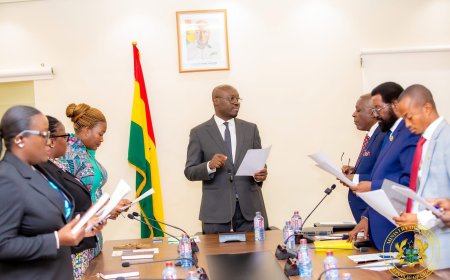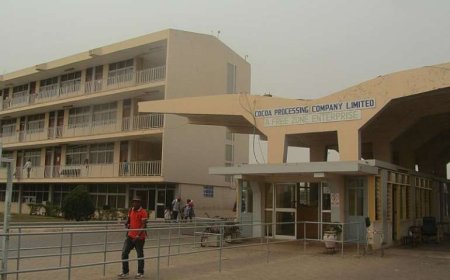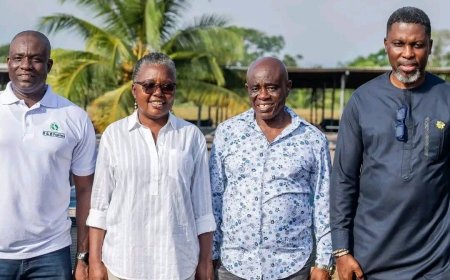Ghana Owes ECOWAS 27,000 Tons of Rice and Maize Borrowed in 2018 - Agric Minister Reveals

Techiman, Ghana - 14 April, 2025 - Ghana's Minister of Food and Agriculture, Eric Opoku, has revealed that the country owes the Economic Community of West African States (ECOWAS) 27,000 tons of rice and maize borrowed in 2018.
Speaking at the launch of the 'Feed Ghana' programme in Techiman on Saturday on April 12, 2025, Opoku revealed that ECOWAS leaders have demanded repayment, prompting the Minister to request a one-year grace period to settle the debt once the government's "Feed Ghana" initiative takes off.
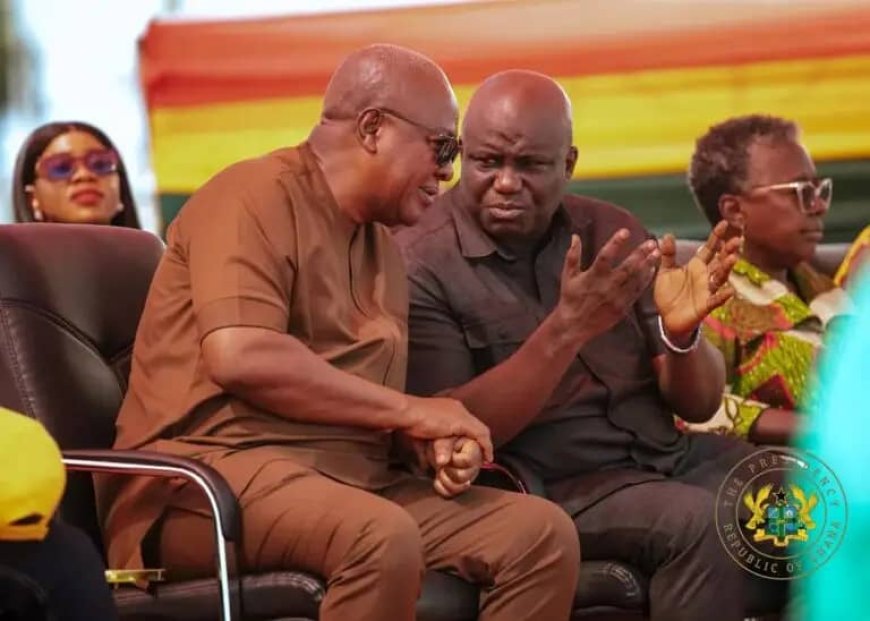
President Mahama (left) interacting with Mr Eric Opoku, Food and Agric Minister, during the launch of 'Feed Ghana' programme in Techiman
According to the Minister, the food stocks were initially secured to address food security challenges in the country. However, ECOWAS is now calling in the debt, prompting the government to seek a temporary reprieve. The government aims to mobilize the necessary quantities without compromising domestic food needs while meeting its regional obligations.
''Recently, leaders from ECOWAS came it our office. They said Ghana owes them rice and maize of about 27,000 tons, which we borrowed in 2018, and that they are asking that we refund it.''
"Mr. President, I have, in your name, pleaded that once we commence the Feed Ghana initiative, we will come and repay the loan in one year's time," he added."
This development comes as Ghana faces challenges in its agricultural sector, including a temporary ban on grain exports due to near-drought conditions. The country has struggled with erratic rainfall and low crop production, affecting 1.8 million hectares of land.
The Feed Ghana project is an initiative launched to boost food security and agricultural productivity in Ghana. Its primary objective is to create employment opportunities for youth and agripreneurs in farming, processing, and agribusiness sectors, addressing graduate unemployment in agricultural institutions. The project aims to expand agricultural production, ensure stable supply of raw materials, and support agro-industry growth.
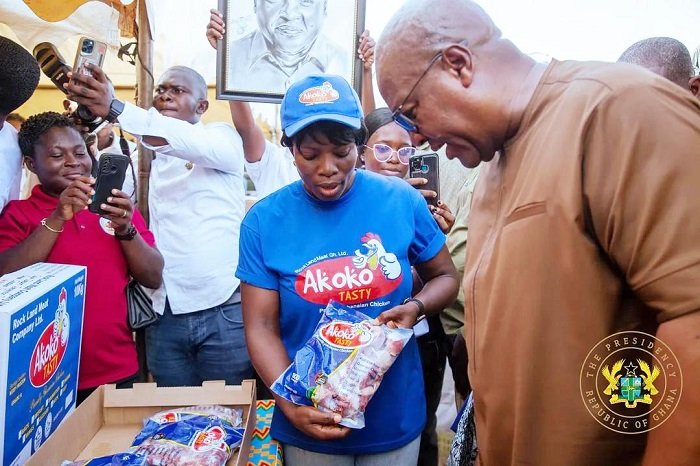
By integrating unemployed graduates into the workforce and revitalizing local food systems, Feed Ghana seeks to transform Ghana's agricultural sector and contribute to the country's economic growth. The project has various components, including initiatives to develop grains, vegetables, poultry, and livestock, as well as support for institutional farming and agro-industry development.
Source: Lead News Online



















